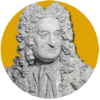Hans Sloane and Slaves – “History is there to make us think” Prof. Olusogo
Hans Sloane was a complex character. Every morning he gave his services for free to those who could not afford medical care. From 1694 he became physician to both the Foundling Hospital and Christ’s Hospital and devoted the whole of his salary to the care of children of London’s poor. A great promoter of advances in the practice of medicine, he pioneered the use of quinine to treat malaria and was an early advocate of the use of inoculation to fight smallpox. Generous also with his time, he trained apprentices, shared his knowledge with medical students and with his position as President of the Royal College of Physicians he supported the very few women who entered the field of medicine. Sloane has been considered as one of the foremost physicians of his time, a giant of the Enlightenment, particularly notable for his leadership of the Royal Society. It was during his Presidency, and through his influence, that the fourth edition of the London Pharmacopoeia appeared. This advocated a more rational approach to prescribing, drawing on Sloane’s own knowledge of the therapeutic properties of plants. Collecting and documenting ‘curiosities’ was Sloane’s passion and an extension to his scientific interests to understand the works of Nature, Humanity and the role of God in creation. It is here that an opposing lens shines a different light on Sloane. Sloane was a man of science but also a man of his time. In his day, slavery was both legal and accepted in England, the English Colonies and throughout much of the world. During his time in Jamaica, Sloane recorded the lives of enslaved Africans and the
indigenous peoples of the Caribbean region; their traditions, music, their medicines and their culture. Slaves helped him by providing information contributing to his important botanical research and helping to collect the almost 800 items of flora and fauna which he brought back to England. As a young doctor he treated slaves, yet as his own records show this was not always with compassion. Similarly he witnessed and recorded the atrocities suffered by slaves. As a man with international connections and scholarly credibility Sloane
was most probably aware of the vigorous moral debate in Spain and France and among religious groups including the Catholic Church and the Quakers, condemning the practice of slavery.
Through his marriage to Elizabeth Langley Rose, a wealthy heiress to a shared sugar plantation, Hans Sloane became the owner of slaves. Whilst Sloane neither bought nor sold slaves, much of his vast collection was acquired with money from the plantation. Furthermore, other collections which he bought and many of the gifts he was sent would have been acquired, at least in part, as a result of slave labour and included examples of the cruel devices of slave control. There are no records of Sloane speaking out against slavery or how the slaves on the plantation he profited from were treated. However after his death, his records of the abhorrent treatment of slaves were important in galvanising calls for the abolition of the slave trade by the founder of Methodism, John Wesley, Thomas Clarkson and others. Trading in slaves was abolished in 1807. Slavery, itself was abolished in England and the British Colonies by an Act of Parliament in 1833.
